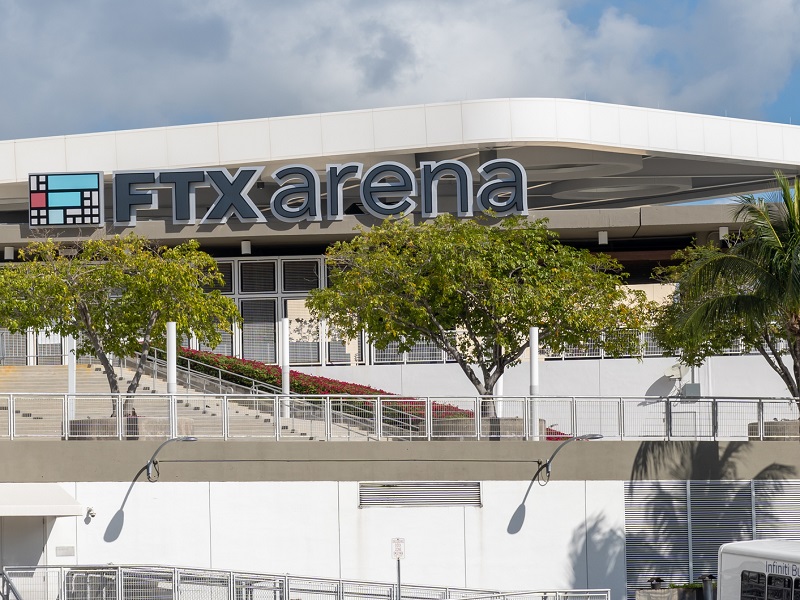
The board of the Ontario Teachers’ Pension Plan (OTPP) is facing a US$95-million class action from its own members over the fund’s investments in the notorious collapsed cryptocurrency exchange FTX.
In a statement of claim filed with the Ontario Superior Court of Justice in Toronto, a representative plaintiff proposing to act on behalf of the plan’s 340,000 active and retired teachers asked the plan board to reimburse the fund for the full US$95-million loss it took when FTX went under, alleging that the board breached its fiduciary duty to members by failing to meet its obligations under Ontario’s Pension Benefits Act when pursuing the transaction.
Had it acted in accordance with its own statement of investment policies and procedures and followed a “prudent due diligence and investment approval process,” the board would not have gone through with the deal, the claim continues.
None of the allegations in the statement of claim, which lists John Archibald of Toronto law firm Investigation Counsel P.C. as counsel to the plaintiffs, have been proven in court. The lawyer did not respond to a request for comment.
In an emailed statement to Investment Executive, an OTPP spokesperson said that they were aware of the claim against the board.
“We believe that the claim is without merit and intend to defend ourselves,” the statement reads. “We take our responsibility for the investment of plan assets seriously and have strong investment risk management processes, including robust due diligence on all private investments.”
OTPP made its initial US$75-million investment in FTX International in October 2021, taking an ownership interest of around 0.4%. It followed up in January 2022 by injecting a further US$20 million for a 0.5% stake in the exchange’s U.S. entity FTX.US as part of a funding round that valued the entire FTX operation at around US$32 billion. Both investments were made through the Teachers’ Venture Growth (TVG) platform, a subsidiary created to invest in emerging technology companies.
However, by November 2022, the pension fund was forced to write down its investment to zero after the exchange filed for bankruptcy amid allegations of fraud and misappropriation of customer funds. Several senior FTX executives have since been jailed over the collapse, including founder and CEO Sam Bankman-Fried, who received a 25-year prison sentence following his conviction on counts of fraud and conspiracy.
In the class-action claim, the plaintiff focuses on alleged inadequacies in the OTPP board’s due diligence and investment approval process.
“The Board failed to obtain adequate and reliable information about the FTX Entities’ internal controls in the critical areas of management and governance, finance and accounting, as well as digital asset management, information security and cybersecurity,” the statement says. “The Board also ignored, or otherwise failed to recognize and appropriately investigate and consider, red flags in respect of those internal controls.”
In addition, the claim alleges that developments in the Canadian cryptocurrency sector – including the regulatory fallout from the collapse of local exchange QuadrigaCX – should have put OTPP on high alert about such investments prior to its FTX involvement.
“The collapse of Quadriga, the [Ontario Securities Commission’s] report addressing that collapse and the subsequent Canadian regulatory developments in respect of cryptocurrency exchanges constituted special circumstances that raised the level of due diligence required of the Board to fulfill its obligation of prudence in respect of the Plan’s investments in the FTX Entities,” the claim states.
In an earlier statement issued around the time of the FTX bankruptcy, OTPP defended its due diligence process. “In FTX’s case, our underwriting process included working closely with third-party advisors and FTX to explore commercial, regulatory, tax, financial, technical and other matters,” it said. ”Recognizing that no due diligence process can uncover all risks especially in the context of an emerging technology business, the investment in FTX was sized moderately in relation to TVG and the overall portfolio of the Plan.”
Despite its disappointment in the outcome, OTPP’s statement added that the US$95-million loss would have “limited impact” on the plan, noting that the investment represented less than 0.05% of its total net assets.
David Milosevic, a lawyer with experience in securities litigation and class actions, said the fiduciary relationship between pension administrators and their members adds a level of complexity to the case compared with the typical investment losses lawsuit. Still, he said that any trial could provide useful guidance to investors or all stripes regarding due diligence requirements.
“Professionals in this area should be following the case closely, to keep abreast of the level of obligation that the court is going to find for pension advisors or any kind of investment advisors in a case like this,” said Milosevic, who has no involvement in the FTX case.